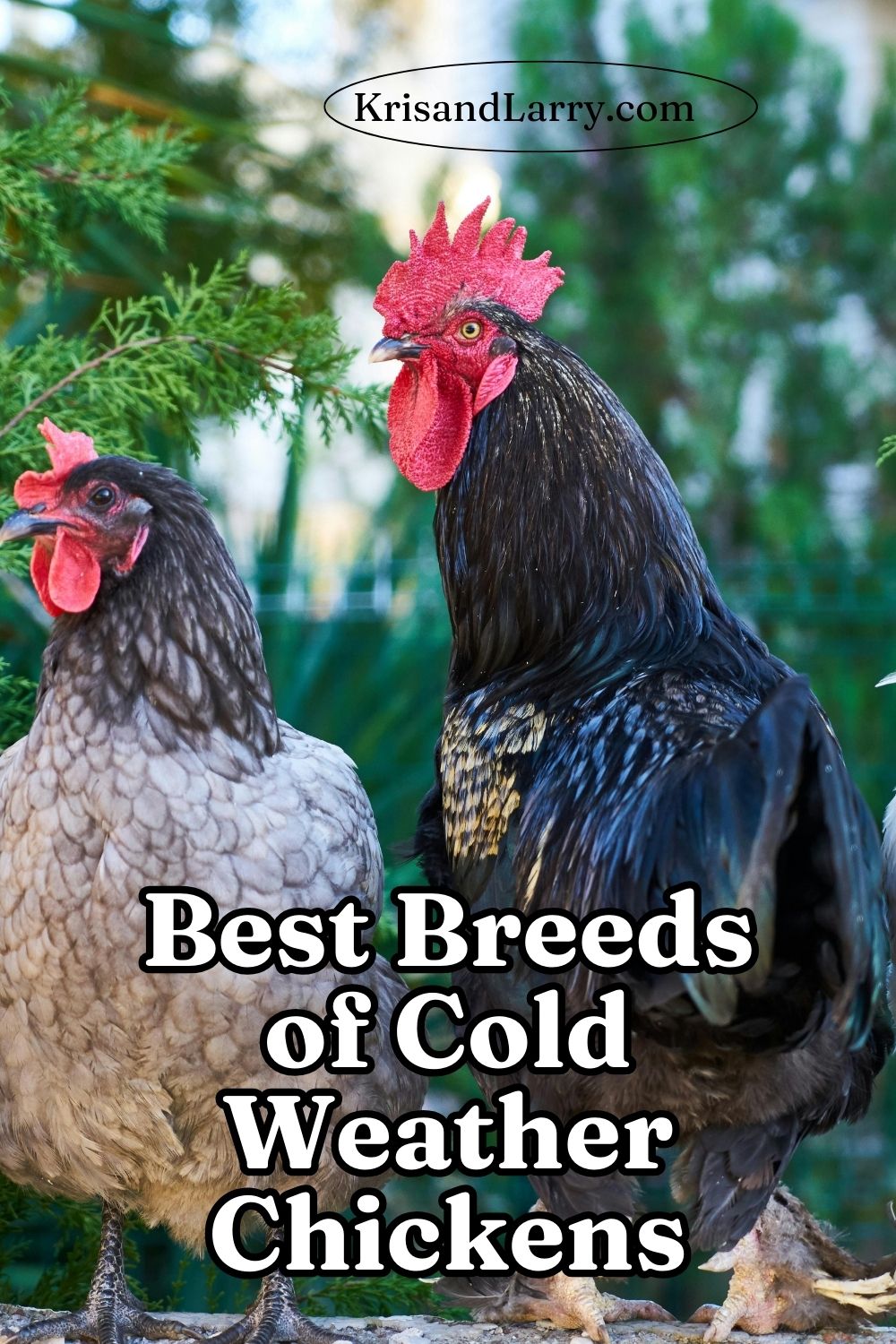Choosing the best cold weather chickens is a critical decision for homesteaders facing chilly climates. Cold-tolerant breeds are essential for ensuring the health and productivity of your flock during winter. Here are key considerations and tips on how to select the most suitable cold climate chickens:
1. Feathering and Cold Resistance:
- Look for breeds with dense, insulating feathers. Feathers act as a natural barrier against cold temperatures, providing essential warmth to the chickens.
- Consider breeds with smaller combs and wattles, as these body parts are prone to frostbite in extremely cold weather. Breeds like Wyandottes and Australorps have compact combs that are less susceptible to freezing.
2. Dual-Purpose Breeds:
- Opt for dual-purpose breeds that are well-suited for both meat and egg production. This ensures that your chickens contribute to both sustenance and self-sufficiency during the colder months.
- Breeds such as Plymouth Rock (Barred Rock) and Rhode Island Red are known for their cold hardiness and provide a balance between egg laying and meat production.
3. Cold-Hardy Breeds:
- Some chicken breeds are specifically developed to thrive in cold climates. Chantecler, for example, is a Canadian breed known for its exceptional cold tolerance and ability to withstand harsh winter conditions.
- Explore breeds like Buckeye, Jersey Giant, and Delaware, which are recognized for their cold-hardy characteristics.
4. Foraging Abilities:
- Chickens that are good foragers can find food even when the ground is covered with snow. Breeds like Rhode Island Red and Australorp are known for their ability to search for food in challenging conditions.
- Foraging not only provides additional nutrition but also keeps the chickens active, promoting warmth through movement.
5. Egg Production in Cold Weather:
- Evaluate the egg production capabilities of the breeds in cold weather. While some breeds may slow down during winter, others, like Leghorns, are known for consistent egg laying throughout the year.
- Consider breeds that maintain decent egg production even in colder months to ensure a reliable supply of fresh eggs.
6. Behavioral Traits:
- Some chicken breeds are more adaptable and less prone to stress in cold weather. Observe the temperament and behavior of potential breeds to ensure they can cope with winter conditions.
- Docile and calm breeds, such as Plymouth Rock and Sussex, are generally easier to manage during colder seasons.
7. Shelter and Coop Design:
- Adequate shelter is crucial for cold climate chickens. Ensure your coop is well-insulated, draft-free, and provides ample protection from wind and snow.
- Consider breeds that are comfortable with confinement during extreme weather and can adapt to coop life when necessary.
8. Local Climate Considerations:
- Tailor your choice of cold climate chickens to the specific conditions of your local climate. If your region experiences particularly harsh winters, prioritize breeds with exceptional cold resistance.
- Consult local poultry experts or neighbors who have experience raising chickens in similar weather conditions for valuable insights.
9. Breed Research and Consultation:
- Conduct thorough research on various cold-tolerant breeds before making a decision. Consider factors such as size, temperament, and specific adaptations to cold climates.
- Seek advice from local poultry breeders, agricultural extension offices, or online forums to gather first-hand experiences and recommendations.
In conclusion, selecting the best cold weather chickens involves a combination of factors, including feathering, adaptability, egg production, and behavioral traits. By carefully considering these aspects and tailoring your choice to your specific climate, you can build a resilient and thriving flock that withstands the challenges of cold weather, ensuring a successful and sustainable homesteading experience.

Choosing the right chicken breeds for cold weather is crucial for successful homesteading in chilly climates. Here is a list of chicken breeds known for their resilience and adaptability to cold weather conditions:
-
Plymouth Rock (Barred Rock):
- Known for hardiness and adaptability to various climates.
- Dual-purpose breed with good egg-laying capabilities.
- Docile temperament and ease of handling.
-
Rhode Island Red:
- Excellent cold tolerance and durability.
- Reliable egg layers, providing a steady supply of brown eggs.
- Hardy and robust, making them suitable for colder regions.
-
Wyandotte:
- Well-feathered and able to withstand cold temperatures.
- Dual-purpose breed known for both meat and egg production.
- Comes in various colors, including silver laced and gold laced.
-
Australorp:
- Australian breed with outstanding cold resistance.
- Holds the world record for egg production in a single year.
- Adaptable to different climates, including colder regions.
-
Buff Orpington:
- Cold-hardy breed with fluffy feathers providing insulation.
- Gentle and friendly temperament, making them suitable for family farms.
- Good egg layers of brown eggs.
-
Chantecler:
- Developed in Canada specifically for cold climates.
- Excellent cold tolerance and ability to withstand harsh winters.
- Dual-purpose breed known for both meat and egg production.
-
Buckeye:
- Developed in Ohio, USA, for cold weather conditions.
- Hardiness and ability to forage in colder climates.
- Dual-purpose breed with dark brown eggs.
-
Jersey Giant:
- One of the largest chicken breeds with good cold tolerance.
- Dual-purpose breed suitable for both meat and egg production.
- Calm and friendly temperament.
-
Sussex:
- Hardy and adaptable to various climates, including cold regions.
- Excellent foragers with good egg-laying capabilities.
- Comes in a variety of colors, including white, red, and speckled.
-
Easter Egger:
- Cold-resistant and known for laying colorful eggs.
- Varied feather colors and patterns.
- Calm and friendly disposition, making them suitable for backyard flocks.
When selecting cold weather chickens, it's important to consider factors such as feathering, cold tolerance, and adaptability to your specific climate. Additionally, providing a well-insulated coop and ensuring access to fresh water during winter are essential for the well-being of your cold-hardy flock.



